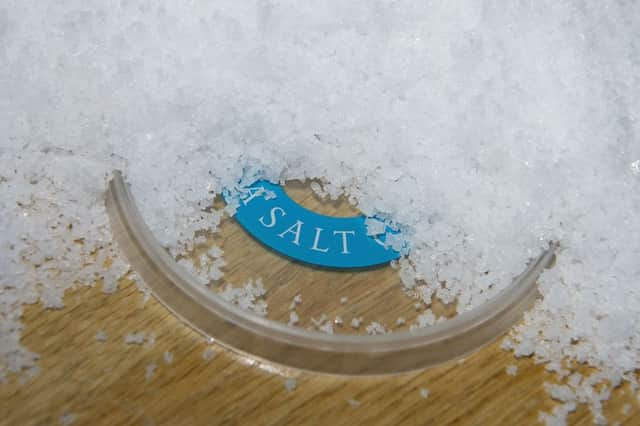Major brands blamed for '˜shocking hike in food salt content'


Despite dozens of firms signing up to a voluntary deal to cut salt levels, health campaigners said too many everyday foods still contain too much salt.
Research from the Campaign for Action on Salt and Health (Cash) found that products such as tinned tomato soup, cheddar cheese and chilled ready meals are among the worst offenders for increasing salt in recent years.
Advertisement
Hide AdAdvertisement
Hide AdAlmost half (47 per cent) of the 45 soups Cash surveyed contained the same amount of salt or more per serving as two slices of Domino’s cheese and tomato pizza.
The saltiest soup tested was Baxters vegetarian Italian tomato and basil, with 3.5g salt per 400g can. It contains more salt than a McDonald’s Big Mac and large fries (just over 3.1g), the research found.
The review of tinned tomato soup from 2007 and 2016 found 55 per cent of the products contained the same amount of salt or more than in 2010.
Soups with some of the biggest increases were Tesco Everyday Value tomato (50 per cent increase from 0.4g/100g to 0.6g/100g), Baxters Favourites cream of tomato (40 per cent increase from 0.5g/100g to 0.7g/100g) and Sainsbury’s Basics cream of tomato soup (25 per cent increase from 0.48g/100g to 0.6g/100g).
Cash also looked at the salt content of 201 blocks of cheese and found that salt levels have hovered at around 1.8g per 100g since 2006.
But some products have seen an increase in salt, with Sainsbury’s Lighter mature British cheese increasing 16 per cent from 1.7g/100g to 1.98g/100g since 2012.
Morrisons medium cheddar has also seen salt levels rise 13 per cent, from 1.6g/100g to 1.8g/100g.
Meanwhile, when it comes to ready meals, the Cash survey found the salt content per 100g of cottage pie – from 42 meals tested – slightly increasing, from 0.52g in 2007 to 0.54g in 2016.
Advertisement
Hide AdAdvertisement
Hide AdSonia Pombo, nutritionist and campaign manager for Cash, said: “Whilst many food manufacturers initially made a concerted effort to reduce the salt in their products, others are now failing to do so and, in turn, are putting the nation’s health at risk.
“To do this, an agency independent of political control and not run by the food industry needs to set regulated targets for salt, saturated fat and sugar to give the food industry a level playing field.”